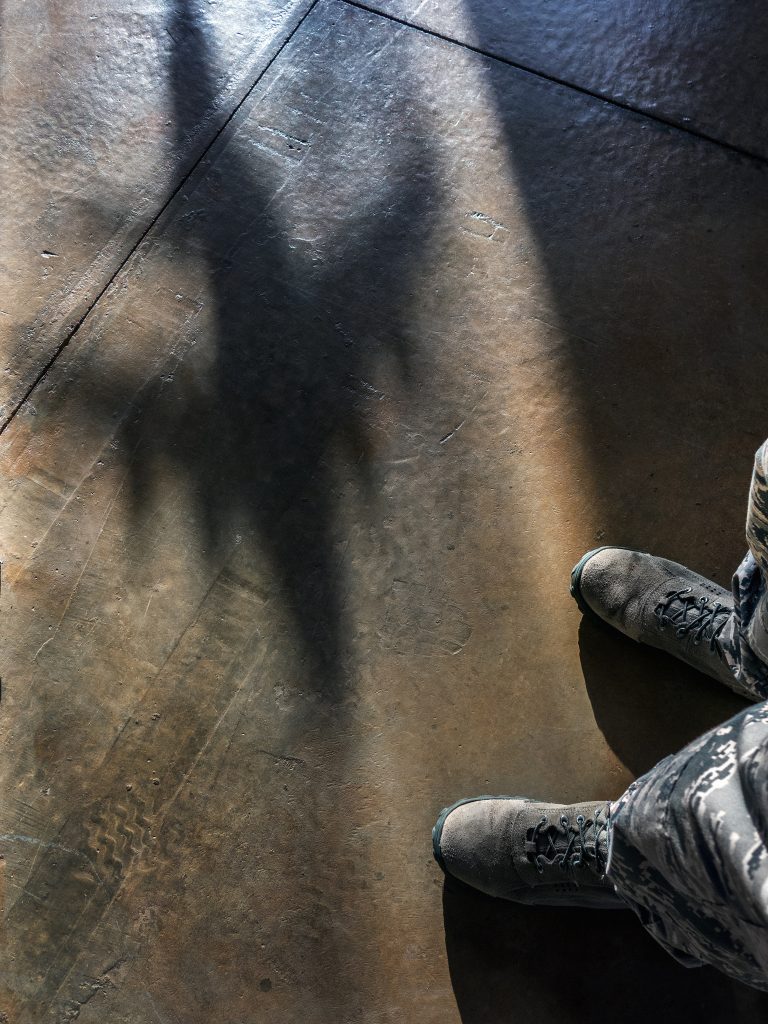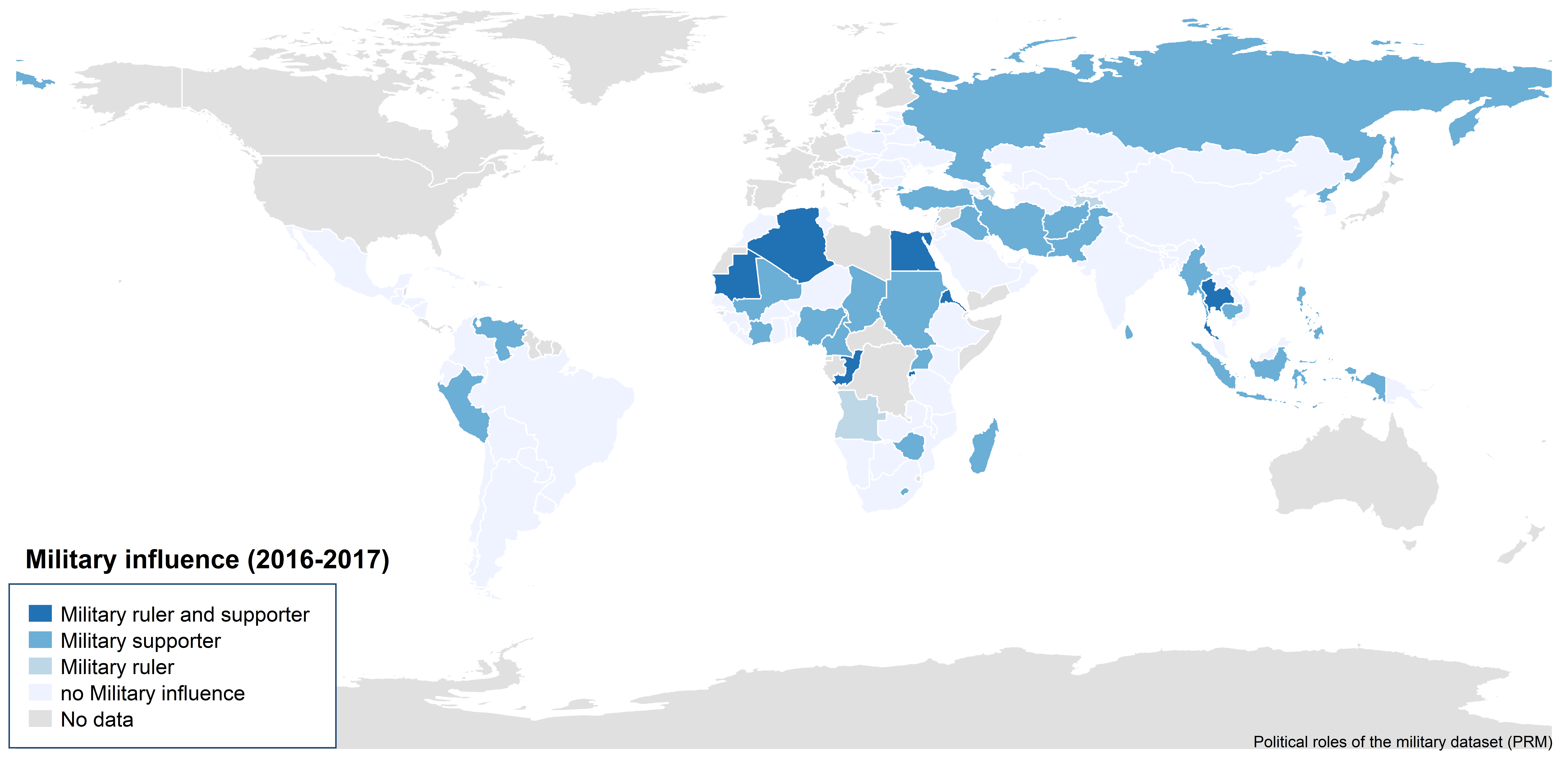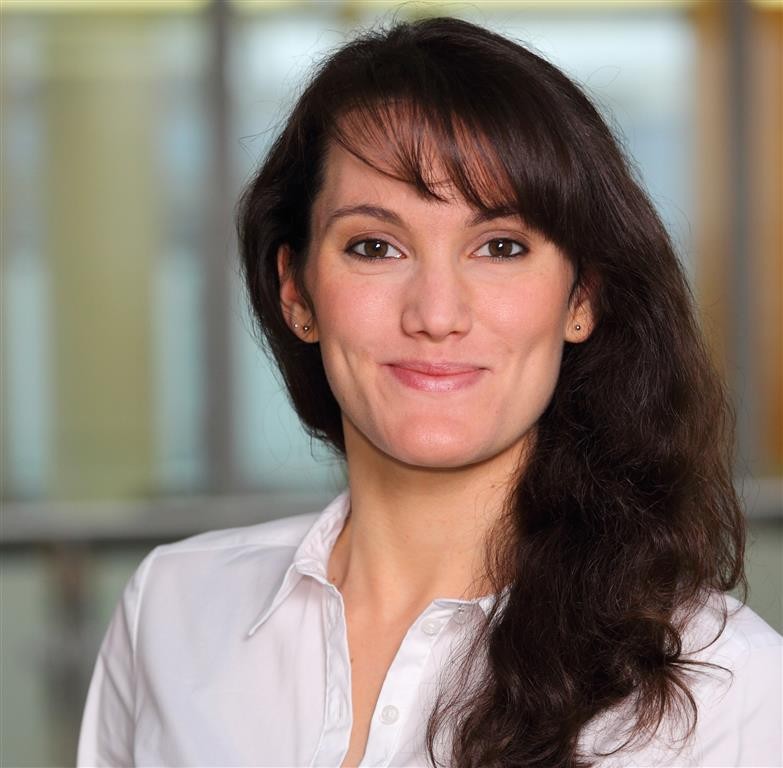Military Influence: the Hidden Power of Men in Uniform
Officers and generals have always been influential and powerful actors, who meddle with politics. Today not so much by coups and direct rule, but by pulling the strings in the background. A new dataset reveals these substantial but indirect political roles of the military.
No political leader, democratic or autocratic, can survive in office without at least tacit support from his generals. Robert Mugabe of Zimbabwe is only the last in a long line of rulers who learned this lesson the hard way. In November 2017, a coup d’état brought an end to his 30 years of presidency. Since 2010, Mamadou Tandja, Niger (2010), Hosni Mubarak, Egypt (2011), Amadou Toumani Touré, Mali (2012), Mohammed Mursi, Egypt (2013), and Yingluck Shinawatra, Thailand (2014) shared the same fate of being removed from office by their armies, and another seven country leaders narrowly escaped the wrath of their generals. Yet unlike these dramatic interruptions might suggest, coups, especially those followed by military governments, are mostly a phenomenon of post-war twentieth century.
Though nowadays fewer officers assume the role of political leaders, military influence continues to cause considerable repercussions in polities across all world regions and regime types. In Myanmar, whose long-time military government officially handed over control to civilian leaders in 2011, large political domains in both parliament and ministries are reserved for officers. In Brazil, high-ranking members of the military allegedly backed the 2016 impeachment of President Dilma Rousseff. And even within the EU, the CIA warned of a potential military coup at the height of the Greek financial crisis.
Various regional and country experts have called attention to the changing role of contemporary militaries. The number of military governments and coups alone does not tell the whole story. More information about this ‘new’ form of military influence on politics is needed. Based on concepts of ‘ruling’ and ‘supporting’ militaries first introduced by Matthias Basedau and Sebastian Elischer, we therefore created a dataset together with Aurel Croissant from Heidelberg University to capture both direct and indirect forms of political influence by military actors.
Uncovering military influence: the PRM dataset
The Political Roles of the Military (PRM) dataset is based on the country sample of Bertelsmann Stiftung’s Transformation Index (BTI) and provides information on 120 transformation countries from 1999 to 2016. Missing are only failed states, like Somalia, or countries without standing armies, like Costa Rica, Haiti, Mauritius, and Panama.
The ‘military ruler’ index of our dataset reflects the military background of the regime and its ruling elite. The ‘military supporter’ index measures whether militaries can influence substantial policies, enjoy impunity from legal prosecution, and whether the armed forces are deployed to quell political dissent or to harass opposition. Data sources for our coding include the BTI, Freedom House Reports, the Database of Political Institutions, US Department of State Human Rights Reports, and country specific literature.
Mapping influential militaries across the globe
Our PRM dataset identifies influential militaries in many countries where commonly employed datasets on regime types and coups do not indicate any interference of the armed forces, such as the Philippines, where strong networks between active and retired members of the armed forces and politicians ensure the military’s role as a veto-player and grant the institution considerable impunity. Or Venezuela, where the Maduro administration increased privileges to the armed forces in exchange for support, and soldiers were repeatedly deployed in matters of internal security. Depending on the measure of military regimes, (less than) half of the countries where we find influential armed forces are marked as military governments, while coups occur only in a fraction of these cases.
Globally, we find most influential militaries in those regions that used to host a large number of military governments – Latin America, the Middle East and North Africa, Sub-Saharan Africa, and South-East Asia. However, most of these are ‘supporting’ militaries, while ‘ruling’ militaries have become a rare occurrence. Current regimes in Latin America, for instance, are no longer directly connected to the military via coups or military careers of leading politicians, but besides Venezuela the armed forces still enjoy considerable privileges, especially in Peru.
In the Middle East and North Africa, officers have largely ceased to rule directly but became crucial to the survival of political leaders. In Syria, for example, privileged minorities fill the ranks of the military and, in exchange, support Bashar al-Assad’s fight against regime opponents and Islamist insurgents. Only in two Arab countries, Algeria and Egypt, are militaries directly involved in political rule.
Soldiers in Sub-Saharan Africa have also not tired of politics. The armed forces of Eritrea, the Republic of Congo, and Rwanda have made themselves indispensable to their governments, and had a direct hand in the establishment of the incumbent regime. Prominent other African examples of influential armed forces are the militaries of Cameroon, Côte d’Ivoire, Lesotho, Madagascar, and Uganda.
Unlike in Zimbabwe, the 2014 coup in Thailand did not lead to an exchange of civilian leaders, but placed the country once again under direct military rule. Officers also remain a highly privileged group in other countries of the region, especially in Cambodia, Myanmar, Pakistan, and the Philippines.
In Post-Soviet Eurasia, the regimes of Azerbaijan and Tajikistan were founded with military help and still retain the connection to the armed forces in the position of the minister of defense. Following the Russian annexation of Crimea, the Ukrainian military became a most relevant actor in the country’s fight for territorial integrity, and the current minister of defense is the first army man in the office since 2004.
Understanding the motives of politicians and state action
As these examples show, men in uniform enjoy considerable influence on politics in countries across all world regions. Beyond the headlines of military coups, the PRM dataset provides less accessible information on the political role of the armed forces. Identifying influential militaries may help us better understand the motives of political elites, and possibly predict the behavior of generals. It may be less surprising to see popular protests met by military force when the armed forces are regularly employed to control dissent. The influence of military versus popularly elected civilians also informs us about the quality of democracy and the acceptance of democratic institutions by members of the elite – an important step in a young democracy’s consolidation.
Tanja Eschenauer and Jil Kamerling are researchers at the Institute of Political Science at Heidelberg University. Tanja’s research focuses on civil-military relations and armed forces in autocracies. Jil’s primary research interests include institutions in autocracies, diffusion and authoritarian learning. They co-created the The Political Roles of the Military (PRM) dataset with Aurel Croissant (http://www.uni-heidelberg.de/politikwissenschaften/personal/croissant/forschung_en.html).




Thanks for the information and very useful 🙂